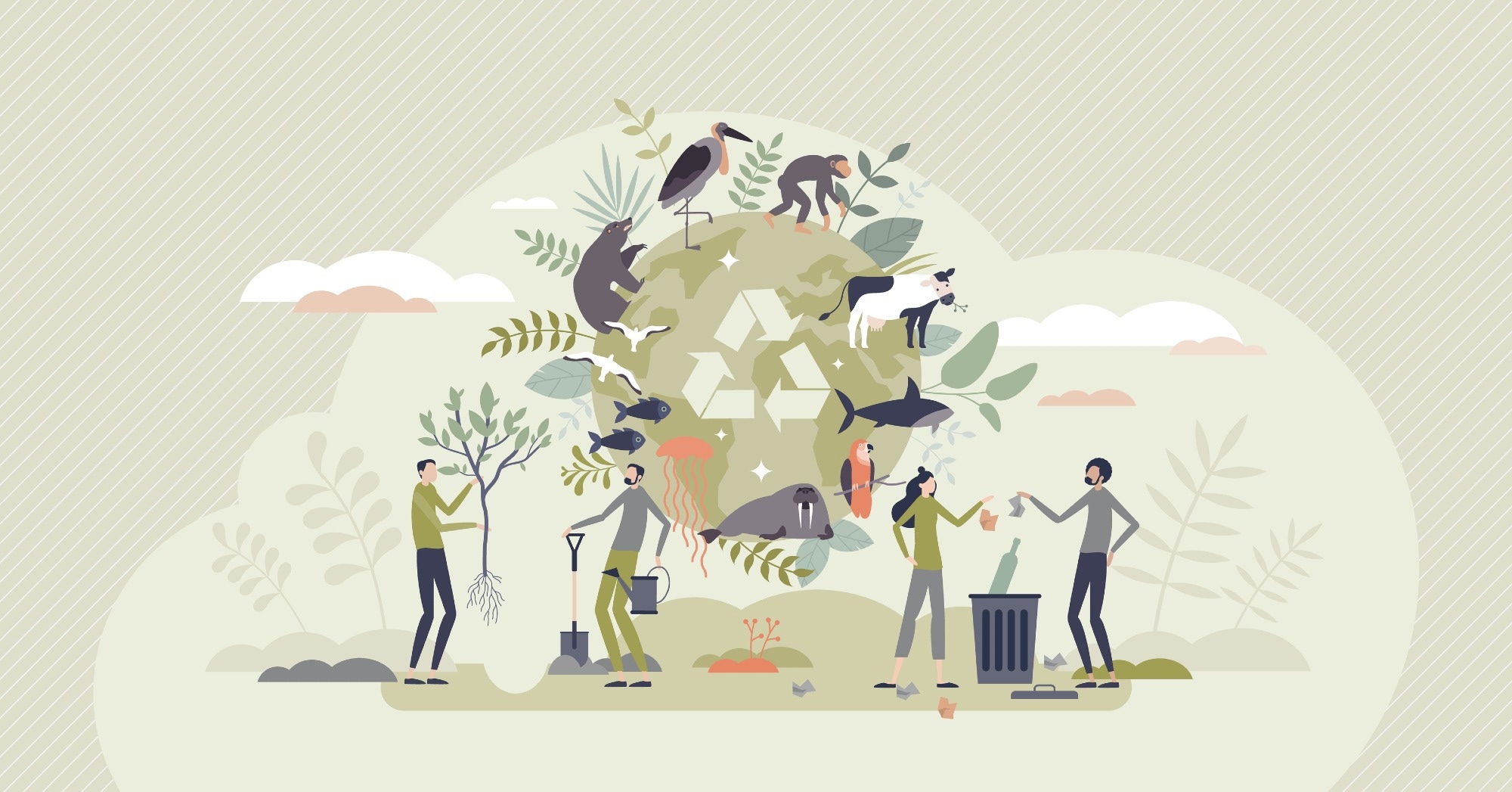In a recent study published in The Medical Journal of Australia, researchers reviewed the significance of preserving Australia’s biodiversity for the well-being of human health.
 Study: Why losing Australia’s biodiversity matters for human health: insights from the latest State of the Environment assessment. Image Credit: VectorMine/Shutterstock.com
Study: Why losing Australia’s biodiversity matters for human health: insights from the latest State of the Environment assessment. Image Credit: VectorMine/Shutterstock.com
Background
A study reporting the state of Australia’s environment (SOE) was released recently, considering the conditions of the past five years. The statement indicates that there is continuous environmental degradation on a continental level.
The environmental warnings are not being fully considered regarding their impact on human health by policymakers and the general public. The SOE report examines the relationship between the environment and human health, acknowledging that the condition of the environment has a significant impact on the health and wellness of Australians.
Biodiversity and healthy ecosystems for human well-being
Food
Biodiversity is crucial for ensuring food security and good nutrition. Pollinating insects and animals is crucial for maintaining a healthy food supply, as diverse species help promote a balanced diet. According to the SOE report, affordable and high-quality food is a significant material benefit that nature provides to humans.
Urbanization and climate change pose a growing threat to food supply and security. The condition of the Australian native vegetation and soils is declining, and climate-related events such as droughts, storms, heatwaves, and cyclones are having a greater impact on crop production.
Australians are being impacted by increasing food prices due to these issues, which have real-world implications.
Medicines
The biodiversity of animals, plants, and microbes provides valuable medicinal compounds and materials for research. Over 50% of medicines on the market are derived from bioactive compounds in non-human species.
Coral reefs possess the greatest biodiversity density worldwide. Intense competition among species leads to the evolution of intricate defensive chemicals, some of which possess pharmacological benefits. Various species, such as reef sponges, mollusks, tunicates, bryozoans, and others, are being studied for their potential use in analgesic, antimicrobial, anti-inflammatory, and antineoplastic applications.
According to the SOE report, drug discovery derived from wild species will remain crucial for healthcare, disease prevention, and wellness. Biodiversity loss is causing a decline in natural pharmacies. Less than 10% of the biodiversity of reefs, such as Australia’s Great Barrier Reef, is currently experiencing rapid degradation.
Water
Victorian forests’ water purification activities save $33 million annually in metropolitan regions and $50 million annually in non-metropolitan regions. Native vegetation and forests aid water infiltration into soils, replenishing groundwater supplies.
Approximately 40% of forests have been lost since European arrival, and the remaining vegetation is fragmented. Logging noted in the forested water catchment in Melbourne causes a waste of 15,000 megalitres of water every year, equivalent to the water consumption of 250,000 people.
Inland waters are in a poor and worsening state due to drought, invasive species, resource mismanagement, bushfires, and pollution. Water scarcity is expected to increase, affecting urban water supplies, agriculture, and ecosystems in Melbourne, Adelaide, and Perth.
Infectious diseases
Preserving natural ecosystems like forests and wilderness regions is crucial in preventing the development and transmission of infectious diseases. Emerging infectious diseases have become more numerous and diverse over time.
Changes in land utilization from agriculture, deforestation, urbanization, and climate change have been linked to such diseases. The SOE report states that pandemics are caused by human activities that disturb the natural relationships between species and their associated microbes.
According to a 25-year study, the risk of Hendra virus spillover in Australia has increased due to changes in bat behavior caused by habitat destruction and climate change. Ross River virus, Lyssavirus, and Japanese encephalitis virus are among the spillover events in Australia.
Psychological health and well-being
Numerous studies have demonstrated a strong correlation between spending time in nature and experiencing positive effects on mental well-being. The benefits observed include improved happiness and self-esteem, as well as a decrease in mental health issues such as depression and anxiety.The SOE report acknowledges the importance of blue and green areas and urban biodiversity in decreasing stress and enhancing overall well-being. The report highlights the crucial role of environmental health in promoting the welfare of First Nations Australians.
Conclusion
The study findings suggest that nature-based therapies should be further researched, applied, and promoted for health issues. The team noted that people are more likely to support environmental protection when health benefits are highlighted.
It is important to consider the environmental effects of human purchasing, exploring, and prescribing activities to avoid harming health while trying to improve it.
The team believes Australia’s environmental decline must be addressed with the same proactiveness as other public health emergencies.
Journal reference:
-
Barraclough, K.A., Carey, M., Winkel, K.D., Humphries, E., Shay, B.A. and Foong, Y.C., 2023. Why losing Australia’s biodiversity matters for human health: insights from the latest State of the Environment assessment. The Medical Journal of Australia, 218(8), pp.n-a. doi: 10.5694/mja2.51904

